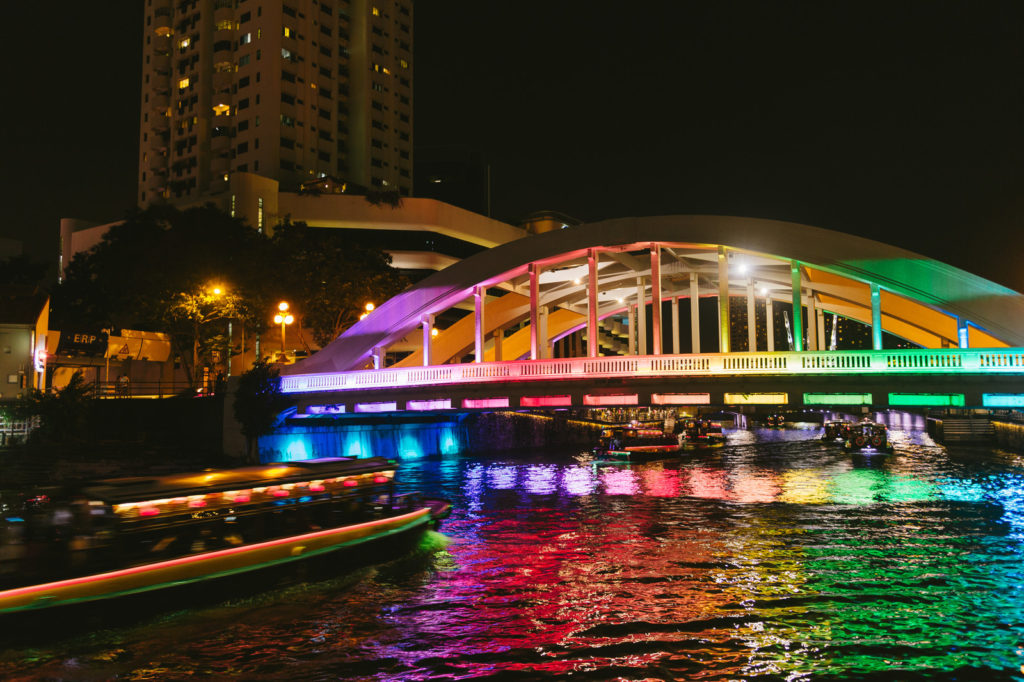Japan is a developed country,right?


Last year a graduate student at Hitotsubashi University killed himself after he was outed as gay. His family has taken the university and the student who exposed him to court. Despite superficial acceptance in popular entertainment, deep-rooted prejudices and discrimination against sexual minorities remain strong in Japan.
Outed on Social Media
In August 2015, a male graduate student in the law department at Hitotsubashi University took his own life, several months after he was “outed” as gay on the texting app Line. In August this year, his family took the university and the person who exposed him to court for damages. According to reports in the Asahi Shimbun and other media, the student confessed to a classmate that he was sexually attracted to him in April last year, while the two men were students at the university. The classmate reacted by exposing the man as homosexual to seven members of their peer group using the Line app. The man’s family is seeking damages for the mental anguish caused by this unsought-for exposure and is suing the university for damages for failing to take appropriate measures when the troubled student consulted a university helpline for advice before taking his life.
A Misleading Reputation for Tolerance
Whenever the subject of discrimination comes up, people like to claim that Japan has traditionally been tolerant toward sexual minorities. As far as homosexuality is concerned, people point to the romantic relationships between men and adolescent boys that were common among the samurai and Buddhist priests in medieval and early modern Japan. The relationships between the shogun Ashikaga Yoshimitsu and Zeami (the founder of the Nō drama) and the warlord Oda Nobunaga and his young vassal Mori Ranmaru are particularly well-known examples. Relationships of this kind were known as danshoku. The writings of Ihara Saikaku depict danshoku relationships as having been common among ordinary merchants and townsmen during the seventeenth century. Attitudes to transgendered individuals also seem permissive at first glance. Cross-dressing is found relatively often in Japanese culture. The best-known examples are the onnagata actors who play female roles in kabuki and the all-women Takarazuka drama troupe, but during festivals and other special occasions it has always been relatively common for people to dress in the clothing of the opposite sex.
Today, a number of popular TV celebrities are cross-dressers. Matsuko Deluxe, for example, a prominent cross-dressing man, is a ubiquitous presence on television variety shows and commercials, and transgender entertainer Haruna Ai is another popular TV personality. “Boys’ love,” a sensuous genre of novels and manga treating the subject of romance among young men, is increasingly popular overseas as part of the “Cool Japan” phenomenon. And people often point out that Japan has never had a religious proscription against homosexuality such as that found in Christianity and Islam. Gay people have not generally been subject to legal punishment or violence.
Based on these facts, people often conclude that LGBT discrimination is not a problem in Japan and that Japanese people are generally tolerant toward sexual minorities. In fact, however, this apparent tolerance is only one aspect of a more complicated reality.
Laughed at, Ignored, and Avoided
What kind of responses can a person who identifies as gay or transgender expect in Japan? Unfortunately, the reality for most people is that they will have to get used to being regarded as “weird” or deviant, laughed at, avoided, or outright ignored. In some cases, they may even face violence.
Until 1991, Kōjien, one of the standard dictionaries in Japan, defined homosexuality as “abnormal sexual desire.” And it was only in 1995 that the Japanese Society of Psychiatry and Neurology announced that it did not regard homosexuality as a mental illness, finally bringing it in line with global standards. The view of homosexuality as a kind of perversion has still not been entirely eradicated on a personal level even today.
Whenever a phenomenon or person identified in any way with sexual minorities is mentioned in Japan, you can almost guarantee that the immediate result will be mockery and uneasy laughter. Presumably by joining in the laughter people hope to prove to themselves and others that they are “not like that.” These jokes are recycled on television, and repeated in schools and workplaces, until they permeate communities throughout the country.
But when people realize that the butt of the joke is not a television personality but a flesh-and-blood member of their immediate circles, the sad reality is that that person is likely to be avoided or treated with open contempt.
Widespread Prejudice in the Workplace
In November 2015, a survey carried out under the auspices of the National Institute of Population and Social Security Research and a number of academics, asked respondents how they would feel if they found out that a member of their social circle was gay. A sizeable proportion of respondents replied that they would feel “displeased” or “somewhat displeased” across all the various scenarios envisaged: 39% in the case of a neighbor, 42% in the case of a co-worker, and 72% in the case of their own child. More than 70% of male managers in their forties said they would be “displeased” to find that a workplace colleague was gay. And around a third of people feel “resistance” to the idea of working alongside a gay or bisexual person, according to a survey carried out by the Japanese Trade Union Confederation in August this year.
This reluctance to accept gay people can lead to bullying, harassment, and violence. In 2000, three youths carried out a series of attacks on gay people in a park in Shinkiba in Tokyo, in which one person died. At the trial, one of the perpetrators admitted that “it’s safe to attack gays because they don’t report it to the police.”
Behind these attitudes is a widespread feeling that belonging to a sexual minority is simply a matter of what people get up to privately in bed. There is still little understanding of the fact that this is an issue that can involve all aspects of a person’s being. LGBT people are talked about in hushed tones, and are ignored in the country’s legal and other systems. The effect is that in many cases, sexual minorities simply cease to exist and are not seen as a presence in schools, workplaces, and homes.
The first legal case to test the human rights of gay people in Japan was the Fuchū Youth House case in 1991, when an accommodation facility run by the Tokyo Metropolitan Government refused permission for a homosexual rights group to use the accommodation. Although the court found in favor of the group that was discriminated against, ironically the case has had the effect of highlighting the extent to which the wider society prefers to ignore sexual minorities. In 1997, the Tokyo High Court handed down a judgment that said “It is necessary for government bodies to show meticulous consideration for homosexuals, as a minority, and to ensure their rights and interests are upheld. It is unacceptable for a public authority to be indifferent to or ignorant of these points.” Nevertheless, even 20 years later there is still no legislation in place allowing same-sex marriage or protecting the human rights of sexual minorities in Japan.
Overcoming Exclusion and Isolation
These numerous examples—mocking people, regarding them as deviant, avoiding or ignoring them altogether, and in extreme cases, carrying out violence against them—make it clear that Japan can hardly be described as a place that is truly tolerant of sexual minorities. Most LGBT people keep their identity closely hidden and live in fear of what might happen if their secret is ever exposed. They can rarely rely on social support, and in fact very few sources of such support exist. They are forced to cope with social exclusion and isolation, and thoughts of suicide are notoriously high among sexual minorities. In the case of the Hitotsubashi University graduate student I mentioned at the start of this article, it seems certain that the unexpected exposure of his identity as a gay man and the inadequate response of the university authorities when he sought advice ultimately led him to take his own life.
A glimmer of good news can be seen in the recent decision by several local authorities to recognize same-sex partnerships, and in the changes that are starting to take place in some companies as a result. These changes are part of a wider social movement toward wider recognition of the rights of the LGBT community. During last year’s local elections and the elections for the upper house this year, increasing numbers of candidates and parties came forward to speak up on behalf of sexual minorities. Many people now expect the extraordinary session of the Diet this autumn to feature some kind of debate on legislation to protect LGBT rights. Most heartening of all is the fact that growing numbers of people are stepping forward to fight back against prejudice and discrimination.
Of course it would be premature to be too optimistic about these developments. But I hope that in time these changes will help to get rid of the misunderstandings and prejudices that many people continue to hold, and will lead to a situation in which it is taken for granted that sexual minorities will always make up a certain proportion of people in our workplaces, schools, local communities, and families. I hope that with time people will come to terms with the basic truth that all of us encounter LGBT people in our daily lives. Perhaps this would go some small way to making amends for the loneliness and desperation that chased one desperate graduate student to his death last year.
(Originally published in Japanese on October 4, 2016. Banner photo: Participants at the Tokyo Rainbow Pride 2016 take part in a parade in the streets of Shibuya in Tokyo on May 8, 2016. Around 5,000 members of the LGBT community and their supporters marched for wider acceptance of sexual diversity and lifestyles. © Jiji.)

